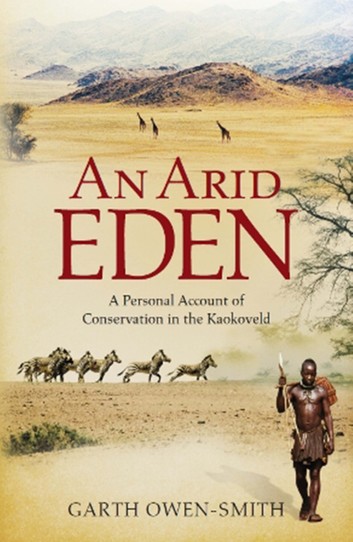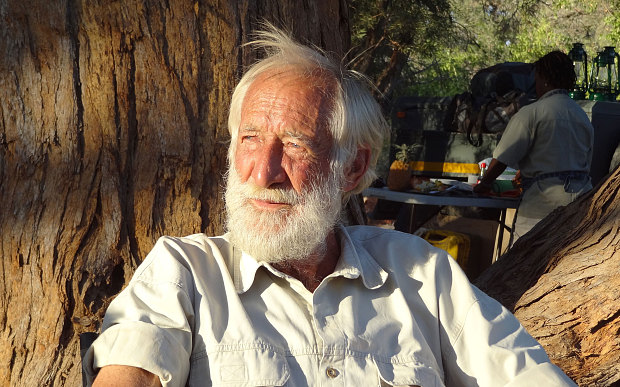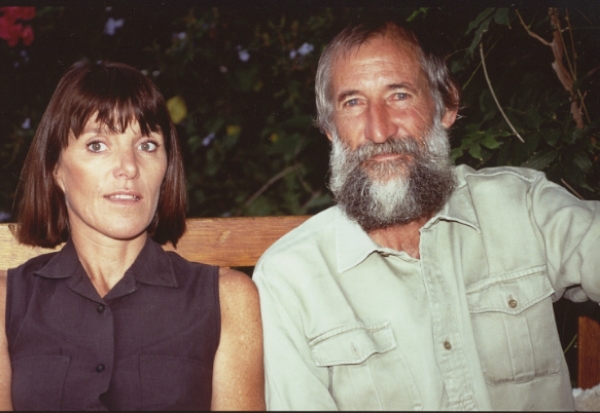Garth Owen-Smith
Community development and natural resource management in Namibia..
Garth Owen-Smith - over 40 years of community & conservation initiatives
Researcher | Conservationist | Community champion
Garth Owen-Smith has spent almost his entire working life fighting – not against a conventional enemy but against official ignorance, harsh climatic conditions, poachers and other enemies of Africa’s fast-diminishing wildlife.
In the process he has lived and worked in a number of countries but his chosen battlefield has always been the most challenging place of all: the harsh, beautiful and almost unknown Kaokoveld in north-western Namibia.
He chose sides early on, when he spent two youthful years in the Kaokoveld and not only developed a deep affinity with the indigenous Himba, Herero and Damara pastoralists but realized that they had developed the ideal form of nature conservation, a situation in which humans and their livestock could live in equilibrium with wild game, so that there was room for all.
In 1970 he was thrown out of the Kaokoveld as an alleged security risk, then spent a year looking into conservation and the treatment of indigenous peoples in Australia, farmed for two years in Rhodesia, and did pioneering work in conservation education for black youths in South Africa. He finally managed to get back to South West Africa in 1978, and from there embarked on his life’s work, to save the remnants of the Kaokoveld’s rich wildlife, devastated by a variety of illegal hunters.
When he went back to the Kaokoveld in 1982 it was to find that its rich wildlife, including black rhino and desert-adapted elephant, had been devastated by illegal hunting. Owen-Smith has spent the last 27 years working to reverse this, starting a non-government organization with his partner, Dr Margaret Jacobsohn. Together they have won some of the world’s major conservation awards including the Goldman Grassroots Environmental Prize for Africa, the United Nations Global 500 and the Tusk Conservation Award.
North-western Namibia is now a popular tourism destination and the Kaokoveld’s wildlife has come back from the brink of virtual extinction, and thousands of people have benefited from the links that were forged between the community and natural resource management.
A synopsis of An Arid Eden by Garth Owen-Smith:
Two remarkable tales woven together - the story of the Kaokoveld, an arid eden in the remote north-west of Namibia, so nearly lost, but regained to become one of Africa's iconic wildlife tourism destinations, and also the story of a young man's search for an African way to do conservation in Africa. Garth Owen-Smith first visited the Kaokoveld in 1967. It was a life-changing experience. His unconventional ideas challenged both the conservation establishment and the former South African regime. Despite this, community-based conservation was pioneered in the Kaokoveld and today Namibia is a world leader in this field. But the early years - when the foundation for this ground-breaking approach to conservation was laid - are largely forgotten and untold. An Arid Eden: A Personal Account of Conservation in the Kaokoveld brings those years alive through the eyes of Owen-Smith, spanning four-and-a-half decades of extraordinary dedication, passion and achievement. The author and his partner Dr Margaret Jacobsohn have won some of the world's most prestigious conservation awards for their work in Namibia, which has always challenged convential wisdom. The NGO they founded continues to break conservation, agricultural and rural development paradigms.
Courtesy: Amazon & Kobo.com
Go back to: Local community NGOs
ARTICLES OF INTEREST:
Margaret Jacobsohn & Garth Owen-Smith 1993 Goldman Prize Recipient - Africa
To Save Wildlife, Namibia's Farmers Take Control by Christopher Joyce from NPR 2011



